Revisiting “The Canadian Conspiracy”
R. Colin Tait / FLOW Staff
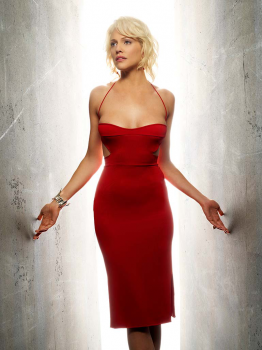
In a recent interview Canadian actor Jay Baruchel (How to Train Your Dragon, She’s Out of My League, and the short-lived Judd Apatow series Undeclared) referred to himself and fellow expats Michael Cera and Seth Rogen as members of the Third Wave of the “Canadian Conspiracy.”
Surely, he was joking, right?
Before we call Glenn Beck, Baruchel was actually referring to the 1985 HBO-CBC mockumentary entitled “The Canadian Conspiracy.” The piece, written by ex-SCTV alums, and directed by Robert Boyd, proposes that there was a plot by the Canadian government to deliberately take over the U.S. by infiltrating Hollywood.
[youtube]http://www.youtube.com/watch?v=b04RzmSJyJE[/youtube]
The “doc” goes so far as to assert that as far back as the silent era, Canadians in Hollywood (early silent film director Mack Sennett and one of America’s original sweethearts, Mary Pickford) laid the ground for future Canadians, Leslie Nielsen (whose brother is a member of Canadian parliament) and SNL‘s Lorne Michaels to take over.
Like all good jokes, the idea contains a kernel of truth. The metaphor of “The Canadian Conspiracy” explains, in part, Canada’s sizable role in cultivating and exporting talent to Hollywood. However, as as many of the “conspirators” in the movie are pretty dated (Anne Murray, Alan Thicke, John Candy, Margot Kidder and Lorne Greene) maybe there is something worth looking at in Baruchel’s “Third Wave” and how it might differ from the earlier version of the evil plot.
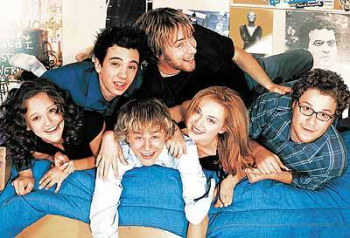
Perhaps by considering the realities of the mass migration of Canadian talent to the US, we can also analyze the minor dominance of global performers within the contemporary entertainment industry.
Tait’s 1/5 Rule
As scholars and critics on the Humanities side of things, we rarely have the opportunity to come up with grandiose theoretical laws like those in sciences. In the spirit of remedy, I offer Tait’s 1/5 rule.
Tait’s rule denotes the visible, yet hidden dominance of Canadian actors in American TV shows. Though this ratio generally differs from show to show, my guideline here is that almost every American show – from Sex in the City to Lost to Grey’s Anatomy has at least one Canadian in the principal cast (thus making the ratio equal 1/5th).
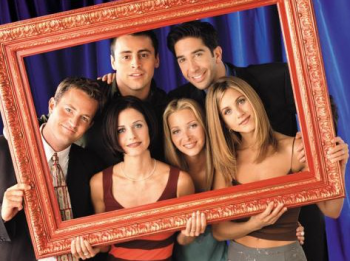
Tait’s 1/5th rule also means it is impossible to filp through channels today without encountering at least one Canadian in an American show, whether this is William Shatner, Glee’s Cory Monteith (Finn) and Jessalynn Gilsig (Terri), True Blood’s Anna Paquin, Fringe’s Joshua Jackson. Nor, for that matter, can we escape seeing Evangeline Lilly’s (of Lost fame) beautiful Canadian hair.

This is not to mention the recurring character actors and extras who populate the backgrounds of almost every sci-fi show currently on TV. Since the days ofThe X-Files Vancouver has become a mecca for shooting Sci Fi (or SyFy, if you prefer). It has stood stood in for Smallville, Caprica, that place where Warehouse 13 is and where the many Stargates are. Its forests and lakes are often the sets which house anything from aliens to demons, as well as the myriad Canadian background players who move from show to show.
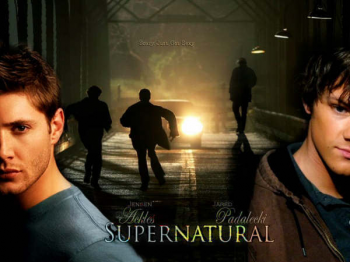
The idea of a “Canadian Conspiracy” is useful insofar as it indicates the contemporary state of global flows of multinational labor, which Canadians refer to as “the brain drain.” In this sense, it seems that the goal of every Canadian actor is to land an American series, thus impoverishing the indigenous production base. On the other hand, it reveals the over-reliance of American television and movie industries on runaway production, to the point where Toronto and Vancouver have collectively come to be known as “Hollywood North.”
One other way of looking at this would be to argue that as opposed to traditional theories of cultural dominance, Canadian representation (whether of landscape or talent) reveals possible alternative reading strategies from the Canadian perspective against a dominant, hegemonic interpretation.
Two examples of this oppositional (Canadian) reading strategies could come by considering 24 and Battlestar Galactica, two programs that lend themselves to conspiratorial thinking, as well revealing the dominance of Canadian casts within them.
Instead of reading them as post-9/11 allegories (as some critics have suggested) and Jack Bauer as the ultimate advocate for torture, such a position would ask whether Kiefer Sutherland’s Canadian nationality (and his legacy as the grandson of the guy who brought universal healthcare to Canada) – changes the presumed meaning of the show.
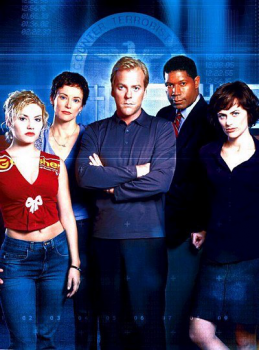
As for Battlestar Galactica, it is definitely worth asking how the show’s central metaphor — that there are robots who are virtually indistinguishable from humans and who seek to dominate a population by blending in — might serve as further fodder for a unified theory of Canadian entertainment labor.
[youtube]http://www.youtube.com/watch?v=4Gd5_8K7ES8&NR[/youtube]
That six of the nine actors playing cylons are actually Canadian is too rich a coincidence to pass up looking into, particularly as their role within the show (and in American television more generally) is to pass as “American” or in this case, as “human.”
Conclusion: Canadians playing themselves?
Which brings me back to the idea of the Canadian conspiracy’s “Third Wave.” Not only does this new breed seem to self-identify as inherently patriotic, but the roles that they portray (such as Rogen’s turn in Knocked Up, or Cobie Smuthers’ role as the hockey loving Robin “Sparkles” in How I Met Your Mother) might speak to a new, globalized interpretation that recognizes the presence of a Canadian diaspora, if only as the butt of jokes.
[youtube]http://www.youtube.com/watch?v=l_PIixlTHfQ[/youtube]
Twenty-five years later, it seems like the Canadian Conspiracy, like the cylon invasion, is all going according to plan.
Please feel free to comment.
Image Credits:
1. Tricia Helfer – Cylon, model, or Canadian Agent?
2. Jay Burachel and Seth Rogen – The Advanced Guards of The Canadian Conspiracy’s “Third Wave”
3. Matthew Perry passes as “American” in Friends
4. Evangeline Lilly’s beautiful Canadian hair
5. A quintessential Vancouver setting, whether fighting demons or not.
6. Elisha Cuthbert, Kiefer Sutherland, and wife Leslie Hope, Canadians keeping America safe from Terrorism
Thanks for the kudos but Anna Paquin is a Kiwi.
Great article, Colin! I especially like your 1/5 rule, but it seems it would be greatly skewed in favor of Canada if you were looking at 90s sketch comedy shows.
I still maintain that though reading the Cylons as Canadian is possible, bringing in the actors is iffy because of the presence of Canadian actors (like Tamoh Penikett) on the human side.
There is perhaps no show currently on television that foregrounds a character’s Canadian identity than How I Met Your Mother, so I’m glad you included a nod to Robin. According to the producer commentaries, they told Cobie Smulders that making her character Canadian would allow them to espouse all the things about Canada that are better than the United States. Which they did once, but promptly undermined it with a joke.
I’ve been waiting for Tait’s famous 1/5 rule to fall like rain on the reading public. IT’S HERE!!
There’s definitely something to the notion of Canadian content inviting at least Canadians to read these shows differently. I’d also offer Flashpoint as an example, which has been quite strident in its pride at casting Canadians, and which gradually came to terms with being in Toronto, showing Canadian money, etc., … and which I cannot but watch as a Canadian show with a quaintly Canadian premise of being a show about snipers where no sniping actually takes place, since we’re meant to root for the problem to be resolved through discussion (I can’t think of a single show in television history in which guns are so conspicuous, and yet in which they rarely get used).
And yet the English side of me wants to insist on this being the case for English shows too — knowing that Stringer Bell, McNulty, and Mayor Carcetti are all Brits changes a viewing of The Wire for me.
All of which reopens the issue of how various identity markers invite somewhat subversive readings from the outset, thereby explaining why minority communities have often been able to identify so readily with “bad depictions” or even bland depictions.
Neat post, Colin. Thanks for this.
Thanks to everyone for the input.
Chaos – though nationality is hard to attribute these days, I know Anna Paquin was born in Canada and is often seen in Vancouver. Regardless, her international identity destabilizes (for me) the whole Southern thing going on in True Blood, as does the Swede, and the Aussie as Sookie’s lover and brother.
Charlotte – I still think that Canadians playing their own nationality is something new and different, but I can’t quite put my finger on it. Definitely something more overt at any rate. I agree with the cylon metaphor, but it is meant mostly as an illustration rather than a hard and fast rule, as many of the other actors (beyond the principal cast, of course) including Allesandro Juliani (Gaeta) Nicky Clyne (Cally) are Canadian too.
(I also didn’t want to spoil anything by revealing who everyone was!)
Stuart – Glad to fulfill your dreams on this one Stuart!
Jonathan – thanks for taking a look at this. I don’t mean to say that only Canadians are seen in the contemporary TV landscape, but that they only represent one facet of the globalization of TV/Film narratives.
This is especially true of the Aussie and British contexts which I would love to add to this analysis at a later point. This might extend to Joe Straubhaar’s idea of cultural proximity, as well as the overall perception of these countries as exclusively white, which seems to me to be an entirely different problem.
I also think that your point about ex-pat perceptions of bad or just any depictions of Canadian space (whether as seen in background players, or landscape) can help change our reading strategies, perhaps adding another extratextual level to consider.
Thanks again for the comments, which I will be sure to incorporate should I follow the article up later on…
Hi Colin,
I’m late to the party here but I just had to comment. I remember seeing the original Canadian Conspiracy and being absolutely delighted, so I’m pleased to see this update.
I’m particularly fascinated myself by the powerful presence of Canadians and Canada in so many sci-fi (and SyFy) shows. There has to be something to this, although perhaps it is merely that sci-fi shows in particular need budget breaks, hence the allure of a cheaper locale for shooting, one that also offers state-of-the-art post production facilities?
Lately I’ve been making a game of pointing out actors that I’ve seen in Supernatural on shows like Fringe, Lost Girl, Sanctuary, Warehouse 13, and others. May I recommend to you also as a very strange beast that I’ve been watching on HBO Canada, Call Me Fitz. It has no identified location but it is about a sleazy used car salesman played by Jason Priestly (Canuck). It was created by a Canadian, shoots in Nova Scotia, and is loaded with actors I’ve seen on Supernatural and other Canadian-shot shows. There is also something rather Canadian about the humour although I cannot yet describe precisely what that is.
If found this webpage while searching for a sequel to “The Canadian Conspiracy”. I certainly think it is time for a sequel.